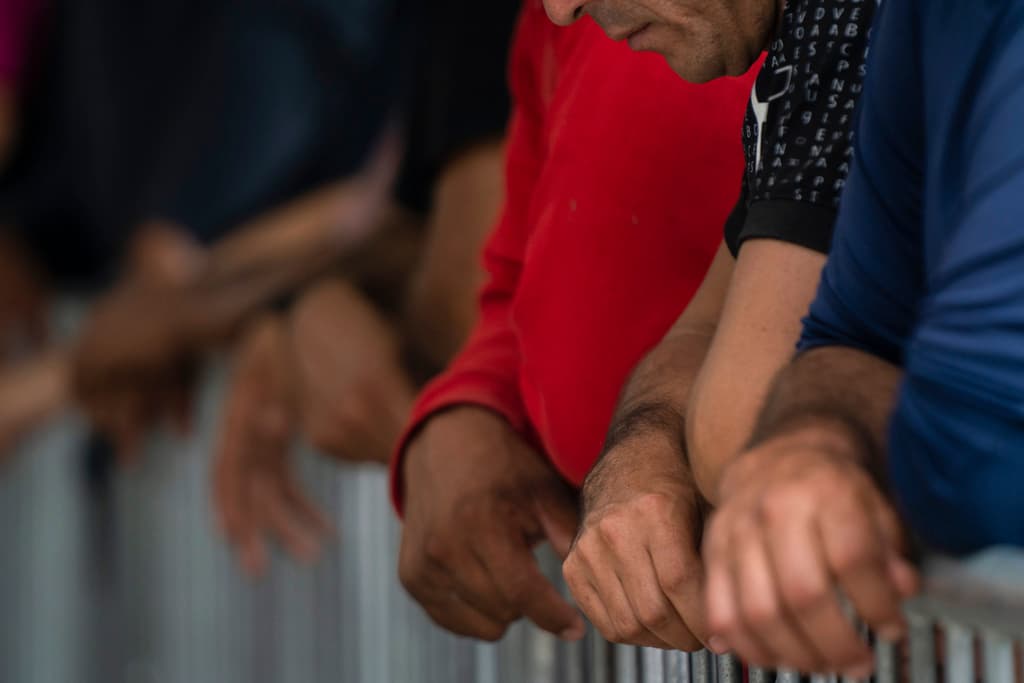Federal Appeals Court Blocks Texas From Enforcing Its Contentious Immigration Law — At Least for Now
It’s the latest in a lengthy and rapidly-changing legal showdown over a Texas law aimed at allowing the state to arrest and deport illegal immigrants.

In at least a temporary win for the Biden administration, the Fifth Circuit Court of Appeals is keeping Texas’ contentious immigration law allowing the state to arrest and deport migrants blocked while it considers the merits of the case.
The court is set to hear arguments on April 3 on the legality of the law. Meanwhile, in a 2-1 split, the judges decided on Tuesday to deny Texas’ request to stay a lower court’s injunction. The order, which follows a hearing before the court last week, is the latest in a lengthy legal dispute over Senate Bill 4, which has sparked national attention about the extent to which a state is allowed to take immigration matters into its own hands.
The Biden administration and immigration groups have been challenging the legislation, arguing that the entry and removal of migrants is the federal government’s domain, while Texas insists that it is being invaded by an influx of illegal immigrants and that as a border state, it has suffered the consequences of the federal government’s inadequate border control.
Chief Judge Priscilla Richman, an appointee of President George W. Bush, and Judge Irma Carrillo Ramirez, a President Biden appointee, joined in Tuesday’s order, while Judge Andrew Oldham, a President Trump appointee, wrote a lengthy dissent.
“For nearly 150 years, the Supreme Court has held that the power to control immigration — the entry, admission, and removal of noncitizens — is exclusively a federal power,” Judge Richman writes in the majority opinion. “Despite this fundamental axiom, S.B.4 creates separate, distinct state criminal offenses and related procedures regarding unauthorized entry of noncitizens into Texas from outside the country and their removal.”
A 2012 Supreme Court ruling in Arizona v. United States striking down a law similar to Texas’ has been a major topic of the dispute so far, and the appeals court made frequent reference to it.
“It is for the Executive to decide whether, and if so, how to pursue noncitizens illegally present in the United States,” the majority writes. “There are ‘significant complexities’ in determining a noncitizen’s immigration status. Texas has failed to persuade us that it is likely to show that the entry, removal, and arrest provisions do not ‘stand as an obstacle to the accomplishment and execution of the full purposes and objectives of Congress.’”
Noting President Biden’s own admission of the immigration “crisis,” Judge Oldham dissents, writing that the border problems stem at least partly from the federal government’s “decision not to enforce the immigration laws Congress wrote.”
He writes that taking away Texas’ “sovereign pejorative to enact a law that its people and its leaders want” must require showing that the legislation is unconstitutional in every application.
“It is hard to see how every application of every provision of S.B. 4 interferes with some other purportedly ‘exclusive’ aspect of the Federal Government’s power over immigration,” he writes. “Today’s decision means that we’ll likely never know how Texas’s state courts and its state law-enforcement officers would have implemented S.B. 4. The law has not gone into effect because a federal district judge entered a global injunction against it and against all of its hypothetical applications.”
Writing that it would be better to allow the law to go into effect and then wait for “an actual conflict to arise,” Judge Oldham notes that a preemptive blocking of the law based on how it would hypothetically play out is imperiling federalism.
“In our federal system, the State of Texas is supposed to retain at least some of its sovereignty,” he writes. “And its people are supposed to be able to use that sovereignty to elect representatives and send them to Austin to debate and enact laws that respond to the exigencies that Texans experience and that Texans want addressed.”
The majority wrote that the dissent’s arguments are “similar if not identical” to Justice Scalia’s discussion in Arizona. “They did not carry the day in Arizona, and we are not free to ignore the reasoning in Arizona,” Judge Richman writes.

